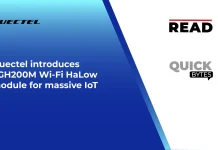mHealth, a game-changing technology that has taken the healthcare industry by storm. Mobile Health, or mHealth for short, is a revolutionary approach to delivering medical care and improving health outcomes, using mobile devices such as smartphones and tablets. In recent years, the use of mHealth has skyrocketed, and it’s no surprise why. With its ability to reach people in remote locations, provide real-time monitoring of health conditions, and deliver personalized treatment plans, mHealth is transforming the way we think about healthcare.
Let’s dive into the exciting world of mHealth, its benefits, and how it is revolutionizing healthcare. Whether you are a healthcare provider, a patient, or simply curious about the latest trends in technology, read on to discover the power of mHealth.
What is mHealth?
The use of mobile devices and other wireless technology in medical care is referred to as “mHealth” (mobile health). The use of mobile devices to inform customers about preventative healthcare services is the most widespread application of mHealth. However, mHealth is also utilized for managing chronic diseases, tracking epidemic outbreaks, supporting treatment, and disease surveillance.
MHealth, as described by the World Health Organisation, is “medical and public health practice supported by mobile devices.” Mobile devices include smartphones, tablets, and wearables like FitBits that allow for real-time patient monitoring.
mHealth: Here Today, Gone Tomorrow? Separating Hype from Reality.
With the Centres for Medicare & Medicaid Services Electronic Health Record Incentive Programme, often known as “Meaningful Use,” a growth of online patient portals has been observed. Though patients are more likely to use tools on their mobile devices than less accessible patient portals, physicians, health officials, and other those interested in promoting patient engagement are beginning to realize this.
Forbes predicted that in 2018, mobile devices will be used in 65 percent of interactions with healthcare facilities in their recent article on the latest developments in telemedicine.
To put it briefly, mHealth is probably here to stay. Hospitals and health systems are constantly looking for new and creative ways to employ mHealth to connect patients more deeply, enhance patient satisfaction and health outcomes, and even cut costs.
The growing number of devices individuals have in their homes, Amazon’s Alexa, and other voice-activated in-home assistants have innovators in the mHealth industry thinking about how they might be able to do more than just order diapers or add items to a shopping list.
KidsMD, an app developed by Boston Children’s Hospital with Alexa in mind, lets users inquire about general health and wellness as well as medication dosage.
What’s Holding mHealth Back?
Patients are given even more knowledge about and control over their own health and healthcare as new mHealth applications are developed and existing ones are upgraded. However, while that is great, there are challenges for those who want to enter the world of mHealth.
The safeguarding of patient privacy is among the main issues with mHealth. Information about patients must be protected in line with HIPAA rules by practices and health systems using mHealth to communicate patient data.
The challenge of interoperability is another difficulty in defining how mobile and other health technology, such as electronic medical records, can and should connect with one another.
Determining which mHealth apps are the most efficient and will best serve the needs of practices and health systems’ patients and providers is difficult as more businesses are competing to gain a footing in the mHealth industry.
Ultimately, the potential of mHealth is only now starting to be realized. It’s interesting to observe and has the potential to completely change how healthcare is provided.
mHealth: A Game-Changer or Just a Passing Trend?
Imagine a world where healthcare is not bound by physical limitations, where access to medical expertise is just a tap away on your smartphone. With mHealth, that vision becomes a reality. It brings healthcare right to your fingertips, enabling you to monitor your health, access medical information, and connect with healthcare professionals anytime, anywhere.
So, whether you’re a healthcare professional embracing mHealth to streamline workflows and enhance patient care, or a patient utilizing mobile apps to track your fitness goals, remember that you are part of a transformative movement in healthcare.






